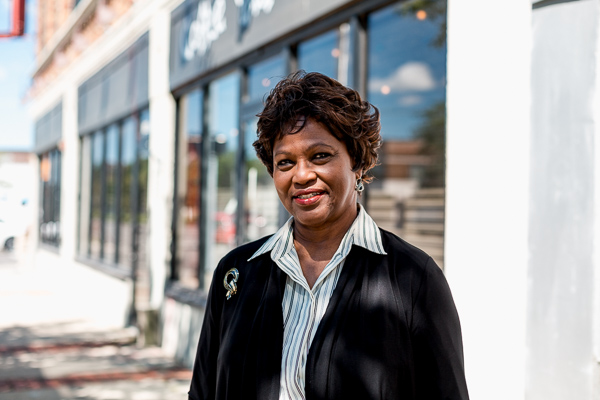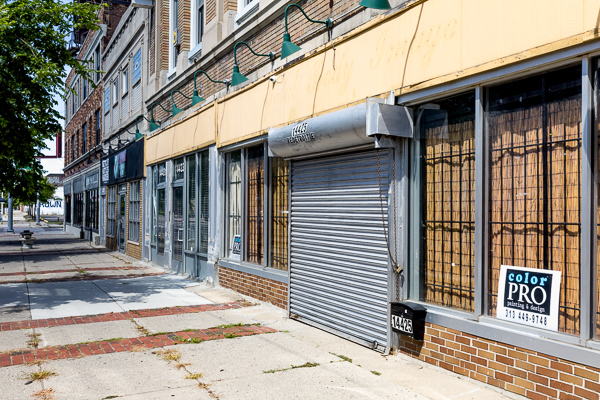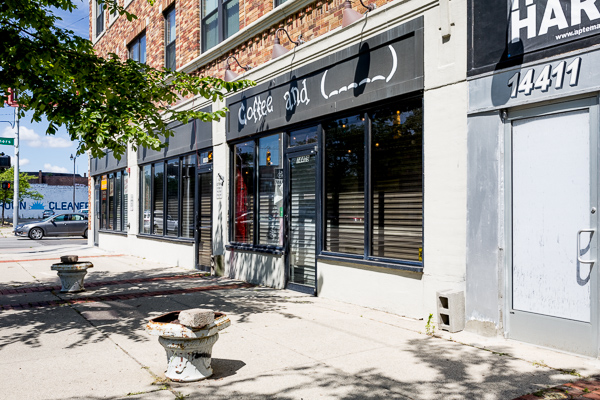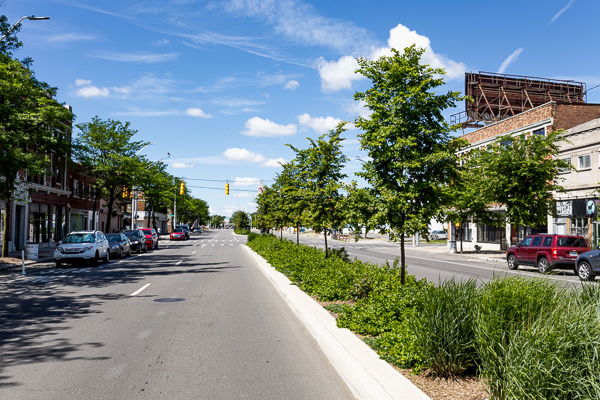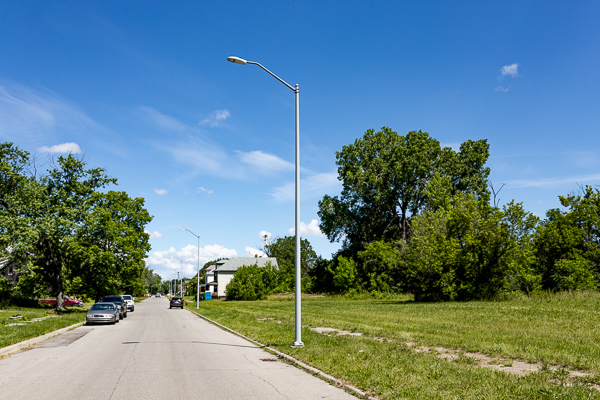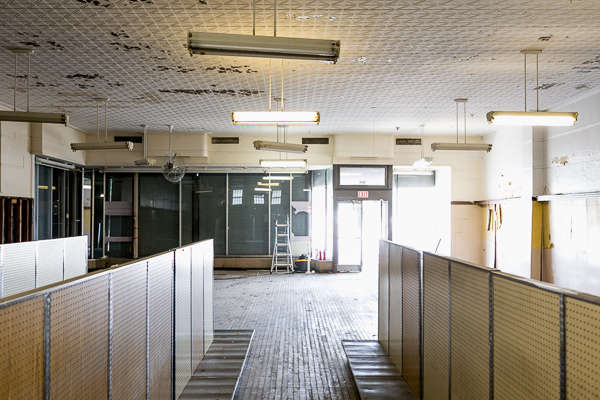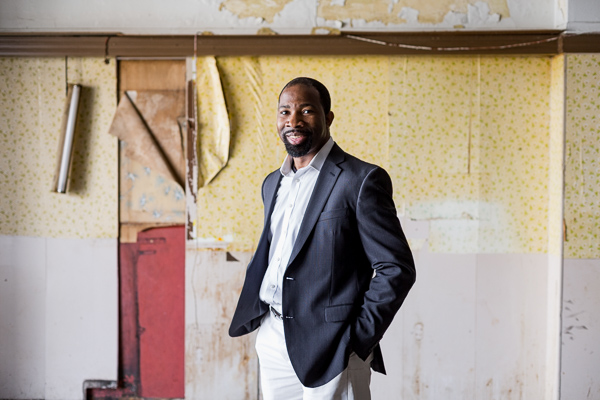Detroit’s next hot commercial corridor: Jefferson Chalmers plots a comeback
In the first of a new series on looking at Detroit's next hot commercial corridors, we examine Jefferson Chalmers, a district with a lot of potential and new businesses, but also its share of challenges.
This is the first article in a series, “Detroit’s next hot commercial corridor,” examining districts that have the potential to become hubs of commercial activity, and what’s needed to get them over the threshold.
Almon Barrow opened Riverfront Building Supply 28 years ago at the intersection of the streets that give the Jefferson Chalmers neighborhood its name—and he’s lived in the area even longer. He’s seen lean times in which the main justification for keeping his business open was that he “might as well stick it out.” But these days business is good, and Barrow is thinking about expanding his operation to finally take advantage of an adjacent building he’s owned for the past decade.
“At one time we had whole blocks that went down,” Barrow says. “Now I look at the people that are coming in and buying more houses in the neighborhood and investing more, and a lot of that development is bringing more business to me.”
Barrow is reaping the benefits of a burgeoning revitalization in Jefferson Chalmers, a neighborhood that’s not widely recognized, but is rich with resources. Tucked between Grosse Pointe Park and the Marina District, the neighborhood contains lovely historic homes, 164 acres of riverfront park land, and a walkable commercial corridor situated along Jefferson Avenue.
“It’s just a very solid neighborhood that people are finally discovering,” says Joshua Elling, executive director of Jefferson East, Inc (JEI).
Restaurants and redevelopment
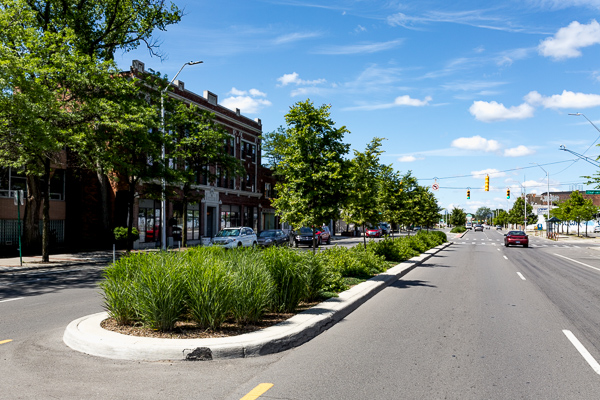
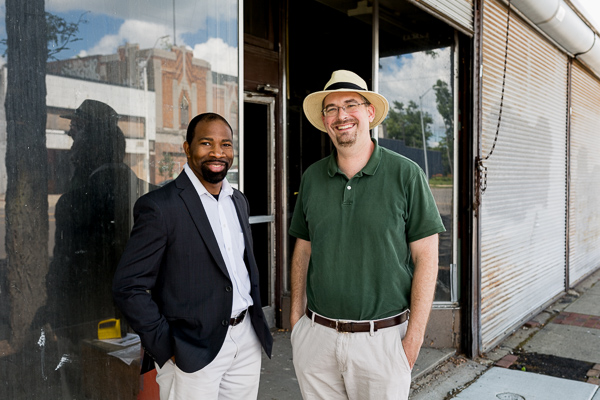
A host of developments are currently on tap for Jefferson Chalmers, many of them driven by JEI’s Jefferson Chalmers Main Street Redevelopment Project. The initiative aims to bring over 100 mixed-income housing units and 30,000 square feet of retail space online across 13 properties in the neighborhood.
“Jefferson East really decided to take a driving role in development,” Elling says. “We got tired of waiting, honestly, for other people to do it. So we just said, ‘You know what? We’re just going to go ahead and renovate some buildings.'”
The Kresge Foundation, the city of Detroit, and the Michigan State Housing Development Authority all funded the first phase of the redevelopment project, which broke ground in May with the beginning of interior demolition of JEI’s former office. That building, at Jefferson and Manistique, will become the home for a brick-and-mortar restaurant version of Norma G’s Caribbean food truck. Meanwhile, JEI is finalizing a bid on the former Kresge building at Lakewood and Jefferson, where JEI plans to locate its new office as well as community meeting space and 2,500 square feet of retail space.
JEI is in the process of assembling funding for phase two of the project, which is to include the renovation of the iconic Savarine Hotel as a mixed-use development including 80 residential units and 15,000 square feet of retail space.
Elling is putting a lot of faith in Norma G’s as a catalytic project for the next phase of the neighborhood’s redevelopment. The decision to bring a full-fledged version of Royal Oak resident Lester Gouvia’s food truck to Jefferson Chalmers was driven by meetings JEI held about two years ago to determine what residents wanted to see in their neighborhood. Elling says residents expressed a desire for more nightlife in the neighborhood, and for such businesses to be African-American-owned or -themed.
“We really feel that having Norma G’s dropping down there is going to be the spark that’s going to drive a lot of other amenity and retail development in the neighborhood,” Elling says.
The new developments come on the heels of last year’s streetscape improvements along Jefferson in the neighborhood, which included traffic-calming center islands and Detroit’s first protected bike lanes. And while the area may not be a destination neighborhood quite yet, it’s attracted new businesses like Coffee and (___) cafe, Red Bag Boutique, and Rock City Records just in the past few years.
“What I’m doing is very grassroots-based,” says Rock City Records owner and Jefferson Chalmers resident Ray Cronk. “It’s all word of mouth, so your word is your honor and your goodwill dictates your success. Whether they’re people who come in from Grosse Pointe or who come in from the neighborhood nearby, I’ve just really come to like them. I just feel like there’s a certain level of comfort.”
Challenges ahead
Nonetheless, many challenges still lie in the path of Jefferson Chalmers’ continued revitalization. Paulette Foster is a longtime neighborhood resident who helped found JEI back in 1994 when it was still the Jefferson East Business Association. She sums up the neighborhood’s main hurdle succinctly.
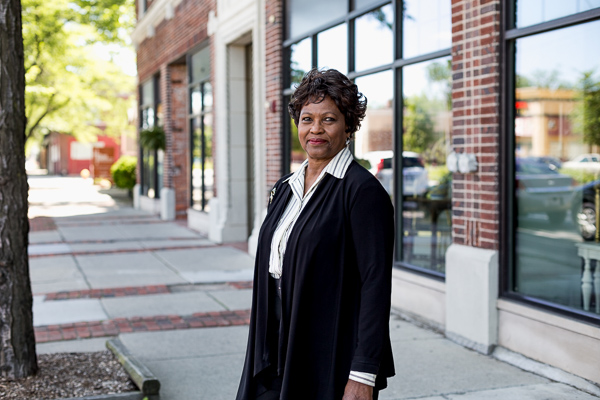
“It needs density,” she says. “If you don’t have density, then it’s really a bad choice to put up commercial businesses. But it’s like the chicken and the egg. What comes first?”
Also on that chicken-and-egg list are businesses like laundromats, dry cleaners, and markets that have been around in Foster’s lifetime, but which the neighborhood currently lacks.
“Those are just the basics … and then the basics will drive other commercial people to come in,” Foster says. “But we don’t even have those.”
Foster expresses particular frustration with the New Far East Side Development project north of Jefferson on Jefferson Chalmers’ eastern border, where numerous houses were torn down to make way for a major development project that never materialized. Elling, too, cites the property as a major challenge that will require the establishment of greater “clarity” between JEI, the city, and the project’s developer.


The New Far East Side Development isn’t the only challenging property in Jefferson Chalmers. JEI is also in the process of developing a strategy for the Vanity Ballroom, the iconic, vacant venue at Jefferson and Newport that once hosted jazz greats like Duke Ellington and Benny Goodman. The city has turned the ballroom over to JEI, and the building received a “National Treasure” designation last year from the National Trust for Historic Preservation.
Elling estimates that the dilapidated building, however, will cost $10 million to $12 million to restore. A structural assessment is currently underway.
“Given the historic nature of that property, given its iconic status as the granddaddy of all the Detroit jazz establishments, we’re going to bring it back,” he says. “We’re just working with some partners to determine the best way forward at this time.”
The business owners putting down roots in Jefferson Chalmers have no illusions about the challenges the neighborhood still faces.
“I think it’s important that I realize this is going to take a little while,” Gouvia says. “But I don’t want it to take very long. I think that onus falls on me to create the right thing, to create the right environment, to get the word out.”
Cronk says his business has been very much a “labor of love” since he opened two years ago. But he feels his neighborhood “may be on the cusp of something big.”
“Every week I seem to grab another few customers who I see more than once, who become regulars here,” he says. “It’s just sort of that stick-to-itiveness that would require this to be revived.”
Photos by Nick Hagen.
